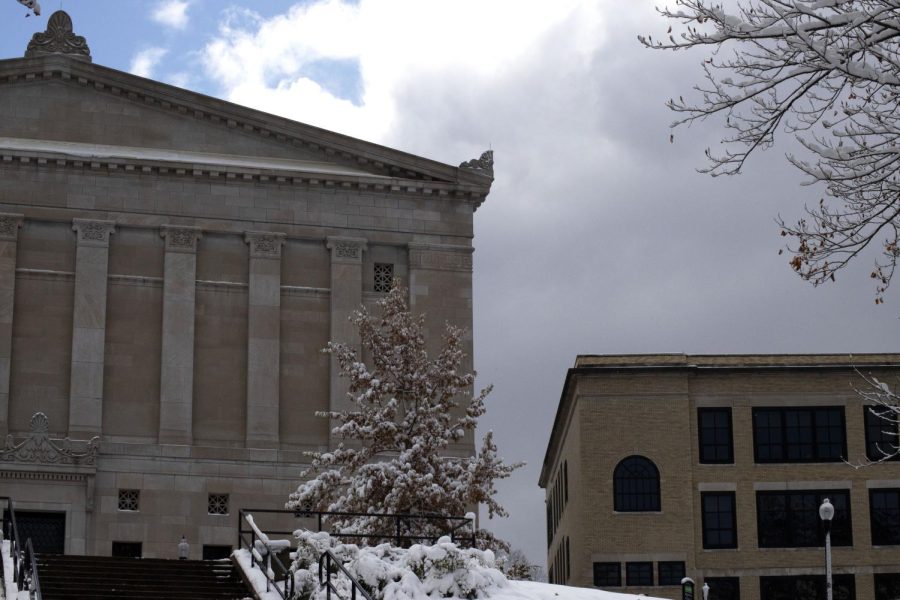Kent State students, professors react to early snowfall
November 16, 2019
“You should eat the snow when you see it for the first time, so you won’t feel cold because you have the snow in you.” This was the first advice Noor Agustina heard from her Pakistani friend before traveling from Indonesia to the United States.
Agustina, a graduate student in the College of Education, Health and Human Services, said the coldest it can get in Indonesia is between 65 to 70 degrees.
When she first saw the snow, she took lots of pictures and posted on her Instagram account, “Welcome to Narnia. The land behind the wardrobe. My Narnia comes true…”
Last Tuesday, Nov. 12, residents of Northeast Ohio woke up to an early snowfall. In some areas, there was between three and 12 inches of snow. For some people, early winter weather can be a bummer. Still, for others, especially those who haven’t experienced snow before, it can be romantic and exciting.
Unlike Agustina, geography graduate student Andrews Boateng is more of a fall person, and he said he is not a fan of extreme weather.
“I came from Ghana in 2003. It was a wake-up call. I thought it was harsh and unbearable,” Boateng said.
Climate change and human inducements can contribute to the weather changes, he said. “Our activities as humans like energy use or transportation destabilize the atmosphere. Then we have all the weather patterns shifting as well,” he said.
Scott Sheridan, a professor and chairperson of the department of geography, said it is indeed unusual to have snow this early. Still, it is not unheard of, as it happens once every 10 years.
“What was very unusual this November was the very strong surge of cold air down all the way to the Mexico border, which is what eventually led to the snow that we saw earlier this week,” he said.
Most of the weather happening across the globe and the U.S. is a response to larger climate patterns and circulations, said Ryan Adams, geography graduate student.
“I believe we are experiencing a neutral El Nino Southern Oscillation (ENSO) phase, so largely we expect the next several months in our region to be near normal (seasonal average) temperature and precipitation,” Adams said.
Although winter may start a bit earlier than before, evidence suggests that it will not stay for long.
Assistant professor of geography Cameron Lee said winter will start later and end earlier, so the globe will experience a more extended summer season.
“Some evidence suggests climate change could usher in more wavier jet stream patterns and so this could lead to either persistent or extreme weather,” Lee said.
This can be good news for summer lovers and farmers, who will have a longer growing crop season. However, it is still something to be concerned about, as the other side of the globe will experience extremely hot weather.
“We are seeing many hotter extremes than cold extremes throughout the last decades,” Lee said.
Shams Mustafa is a general assignment reporter. Contact her at [email protected]












